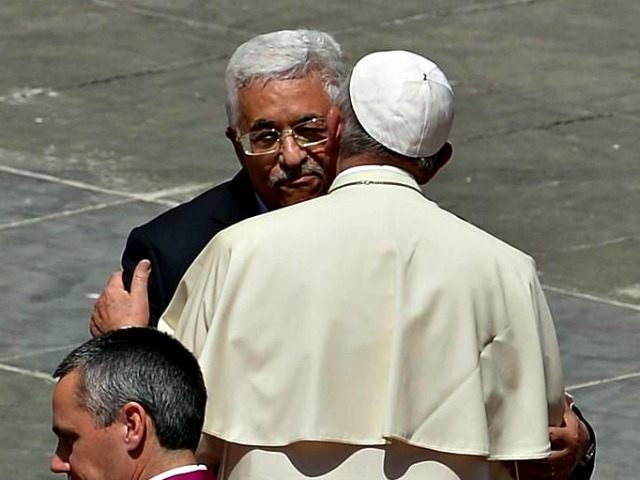Representatives of the Holy See and the State of Palestine signed a “Global Agreement” in the Vatican on Friday regarding “essential aspects of the life and activity of the Church in the State of Palestine” while reaffirming at the same time “support for a negotiated and peaceful solution of the situation in the region.”
The accord, which gave official status to the Vatican’s de facto recognition of Palestine since 2012, received a sharp retort from Israel, which called it “a hasty step (that) damages the prospects for advancing a peace agreement,” and intimated that it could affect its future diplomatic relations with the Vatican.
In a Foreign Ministry statement, Israel said that the move hurt peace prospects and would discourage the Palestinians from returning to direct negotiations. It warned that it would study the agreement “and its implications for future cooperation between Israel and the Vatican.”
Though in 2012 the U.N. General Assembly adopted a resolution recognizing Palestine as an observer non-member state, the European Union as a whole does not acknowledge Palestinian statehood.
Archbishop Paul Richard Gallagher, Vatican Secretary for Relations with States, who signed the document on behalf of the Holy See, called it a “milestone” in bilateral relations. He expressed his hope that the agreement might constitute “an incentive to put a definitive end to the long Israeli-Palestinian conflict, which continues to cause suffering to both sides.”
Gallagher also said he hoped that “the desired two-state solution” might become a reality “as soon as possible.” The peace process, he suggested, “can progress only through direct negotiations between the parties with the support of the international community,” and demands “courageous decisions” if it is to bring about peace and stability in the region.
The agreement comprises a preamble and 32 articles in 8 chapters and will enter into force once both parties have notified in writing that all internal or constitutional requirements have been satisfied.
Gallagher said that the agreement is “fundamentally about the life and activity of the Church in Palestine,” guaranteeing its legal recognition, though he reiterated the Holy See’s position that Catholics do not seek any special “privileges,” other than to be allowed to collaborate fully with their fellow citizens for the common good of society.
The archbishop also pointed out the breadth of the chapter on freedom of religion and conscience, and expressed his desire that in this regard the agreement “might serve as a model for other Arab and majority Muslim nations.”
For his part, Riad Al-Malki, the Palestinian Minister of Foreign Affairs, who signed the document on behalf of the Palestinian state, spoke of the historic character of the agreement and stressed that the achievement “would not have been possible without the support and personal commitment” of Palestinian President Mahmoud Abbas and without the “blessing” of Pope Francis. The provisions of the Agreement, he said, “sum up the common vision” of the two parties in favor of peace and justice in the region, underscoring the protection of fundamental freedoms, the status and protection of the Holy Places, and measures to “promote and strengthen the presence and activities of the Catholic Church in the State of Palestine.”
According to Al-Malki, although the Holy See has made reference to the “State of Palestine” since 2012, Friday’s agreement marks the first time that the Holy See has officially recognized Palestine as a state, understood as “a sign of recognition of the right of the Palestinian people to self-determination, freedom and dignity in their own independent state free from the shackles of occupation.”
The document also “supports the vision for peace and justice in the region, in accordance with international law, on the basis of two states, living side by side in peace and security respecting the 1967 borders,” he said.
Al-Malki underscored what he called “new and unprecedented measures” connected with the special status of Palestine as “the birthplace of Christianity and the cradle of monotheistic religions,” in a time when “extremism, barbarous violence and ignorance threaten the entire Middle East.”
He also said that the state of Palestine “reiterates its commitment to combat extremism” and to promote tolerance, freedom of conscience, and religion, and the protection of the rights “of all its citizens.”
Follow Thomas D. Williams on Twitter @tdwilliamsrome

COMMENTS
Please let us know if you're having issues with commenting.